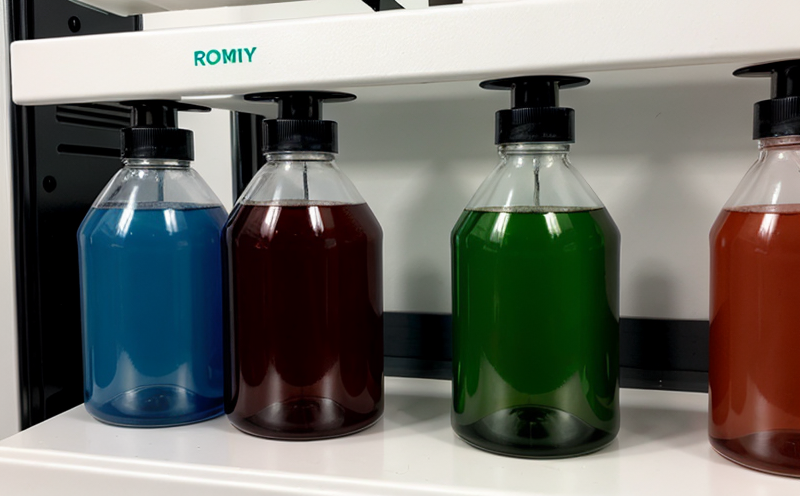DIN 53765 Thermal Analysis Reactivity Testing of Polymers
The DIN 53765 thermal analysis reactivity test is an essential procedure in polymer science and materials engineering. This method quantifies the reactivity of polymers under controlled heating conditions, providing critical insights into their chemical behavior at elevated temperatures. The test is particularly useful for quality managers, compliance officers, R&D engineers, and procurement teams who need to ensure that polymers meet stringent performance and safety standards.
The DIN 53765 method involves subjecting a polymer sample to a controlled heating rate under inert atmosphere conditions. The primary objective is to identify the temperature at which exothermic reactions occur due to the decomposition or reactivity of the polymer chains. This information is vital for understanding how polymers will behave in real-world applications, such as in industrial processing environments where heat stress can significantly affect material performance.
The test parameters are meticulously defined by DIN 53765, ensuring reproducibility and reliability across different laboratories. Key aspects include the heating rate (typically ranging from 10 to 20 K/min), the starting temperature, and the atmosphere used for the test. The atmosphere can be inert gases like nitrogen or helium, which prevent oxidation and other reactions that could skew results.
Specimen preparation is critical in this testing method. Samples are typically cut into small pieces of uniform dimensions to ensure consistent heating rates throughout the sample. The choice of sample size and shape also impacts how heat distributes within the polymer, influencing the accuracy of the reactivity measurement. It’s important that samples are dried before testing to avoid moisture-related artifacts.
The DIN 53765 method uses specialized thermogravimetric analysis (TGA) equipment, which can monitor both mass loss and changes in temperature simultaneously. This dual-functionality allows for a comprehensive assessment of the polymer's thermal stability and reactivity. The data collected during this process is then analyzed to determine the onset temperature (To), peak temperature (Tp), and total heat released (Q).
The results from DIN 53765 testing are crucial for several applications, including:
- Evaluating the thermal stability of polymers in high-temperature environments.
- Assessing the potential for polymer degradation during processing or use.
- Determining the optimal processing conditions to avoid unwanted exothermic reactions.
Understanding these parameters is vital for ensuring that polymers meet the necessary safety and performance requirements. By conducting this test, manufacturers can optimize their production processes, enhance product quality, and ensure compliance with relevant standards.
Why It Matters
The DIN 53765 thermal analysis reactivity testing is not just a theoretical exercise; it has significant implications for the performance, safety, and longevity of polymer-based products. For quality managers and R&D engineers, this test provides critical data that can inform material selection and process optimization. By understanding how polymers react under specific temperature conditions, they can make informed decisions about product design and manufacturing processes.
For compliance officers, the results from DIN 53765 testing ensure that products meet regulatory requirements. In industries where safety is paramount, such as aerospace or automotive, ensuring that materials behave predictably at high temperatures is essential for preventing failures in critical components.
The test also plays a crucial role in research and development by offering insights into the chemical behavior of polymers under stress. This knowledge can lead to the development of new materials with improved properties, such as higher thermal stability or enhanced resistance to degradation.
Why Choose This Test
DIN 53765 testing offers several advantages that make it a preferred choice for polymer characterization:
- Comprehensive Analysis: It provides a detailed understanding of the thermal behavior and reactivity of polymers, offering insights into both stability and potential degradation.
- Regulatory Compliance: The test aligns with international standards like DIN 53765, ensuring that products meet stringent regulatory requirements.
- Predictive Value: By identifying the onset of exothermic reactions, this method helps in predicting how polymers will behave under real-world conditions.
- Optimization Tool: It serves as a valuable tool for optimizing production processes and material selection to enhance product quality and safety.
The accuracy and reliability of DIN 53765 testing make it indispensable for industries where the performance and safety of polymer-based products are critical. By choosing this test, organizations can ensure that their products meet the highest standards of quality and compliance.





